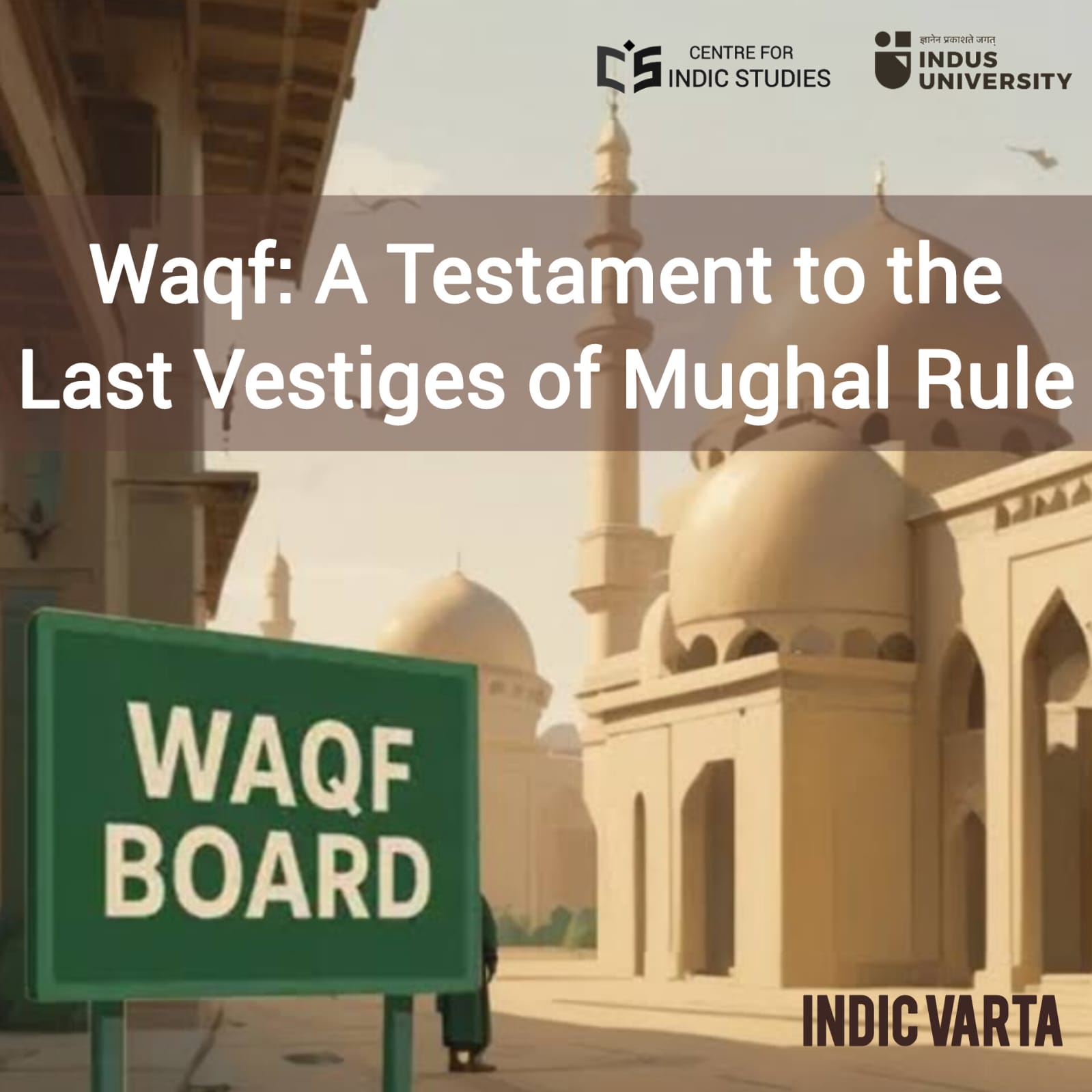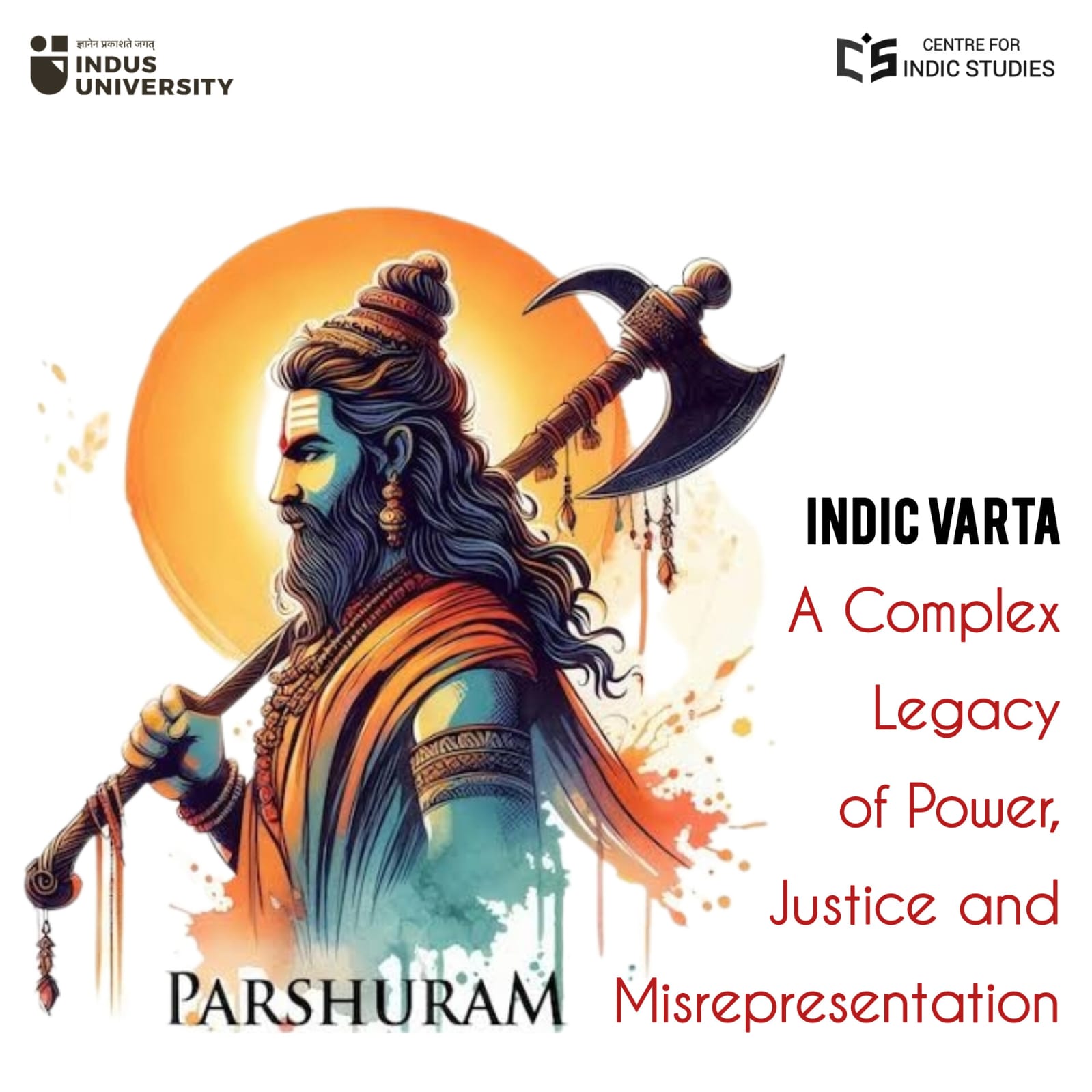- Visitor:58
- Published on: 2025-04-08 04:57 pm
Waqf: A Testament to the Last Vestiges of Mughal Rule
Centuries ago, bloodthirsty invaders from Central Asia, who called themselves the "Mughals" (meaning "mixed"), came to India. They ruled the land for centuries—looting its wealth, raping women and girls, massacring millions, and destroying the social fabric of the country. Even after centuries of this brutal destruction of India's heritage, our nation continues to face struggles. Today, an institution called Waqf operates much like a mafia in the name of religion.

Centuries ago, bloodthirsty invaders from Central Asia, who called themselves the "Mughals" (meaning "mixed"), came to India. They ruled the land for centuries—looting its wealth, raping women and girls, massacring millions, and destroying the social fabric of the country. Even after centuries of this brutal destruction of India's heritage, our nation continues to face struggles. Today, an institution called Waqf operates much like a mafia in the name of religion. Let us take a closer look at how this institution is reminiscent of the rule once imposed by the Mughals.
A Waqf is a religious endowment or charitable trust under Islamic law, where assets such as land, buildings, gold, or cash are donated for religious or charitable purposes, with no intention of reclaiming them. The charitable institution that receives the donation manages the assets, and the income generated from these assets is used for religious purposes. In India, under the Waqf Act of 1954 (and its revised version, the Wakf Act of 1995), the government established the "Central Wakf Council, India," a statutory body formed in 1964. Its purpose is to advise the government on matters related to the proper administration of Waqf properties across the country. The State Waqf Boards, which are created by state governments under Sections 13 and 14 of the Wakf Act of 1995, oversee the management of Waqf properties at the state level. According to a 2009 report by a Joint Parliamentary Committee, the Waqf Boards manage approximately 4 lakh registered properties and around 6 lakh acres of land.
In recent years, the Wakf Act has come under legal scrutiny due to widespread allegations of legal violations. The Waqf Boards have been accused of illegally occupying properties and using them for unlawful purposes. Land grabbing and corruption have become rampant within the Waqf system. Today, the Waqf is the third-largest landowner in India, after the Indian Railways and the Defense Department. This vast amount of control over land has raised serious concerns regarding its misuse and the lack of accountability in the system. Thus, India, once ravaged by centuries of foreign invasions, continues to grapple with the legacy of exploitation in new forms. The Waqf Board today reflects a modern-day threat masked in religious legality, echoing the oppressive strategies of the past.
An Examination of the Most Unjust Provisions of the Waqf Act, 1995
Section 40 of the Wakf Act states “The Waqf Board can decide on any property being Waqf property without any additional basis”.
Section 83 of the Wakf Act states “Waqf Board will have to seek reliance on the Wakf Tribunal, which has been conferred with all the powers of a Civil Court”. It further states that “No appeal shall lie against any decision or order whether interim or otherwise, given or made by the Tribunal.
Section 92 The Waqf Board also has the right to appear and plead as a party to the suit or proceeding any suit or proceeding in respect of a Waqf or any Waqf property.
Section 101 deems the Survey Commissioner, members, and officers of the Board as public servants.
Section 107 This confers powers on the Board and other interested members to claim action at any given time on an event that could have happened at any given point in time.
India is a secular nation, as defined by its Constitution. In 1976, the 42nd Amendment added the words "Secular" and "Socialist" to the Preamble, reinforcing this principle. However, a question arises: if India is truly secular, why do issues like illegal land encroachments continue to occur in the name of religion? The Central Waqf Board, for instance, has managed to gain control of land by declaring it as “Waqf” property, effectively facilitating the looting of national resources. Unfortunately, the Indian Constitution provides special rights to religious denominations, yet it does not explicitly define the term "religious denomination." As a result, minorities in India are often treated as religious denominations. The Waqf Board, in particular, is recognized as a religious denomination and is granted certain powers under Articles 26 and 29 of the Constitution, which are intended to protect the rights of minorities in India. This legal framework has allowed the Waqf Board to gain significant control, raising concerns about its misuse for unauthorized purposes.
Art 26 states “that all denominations can manage their own affairs in matters of religion”.
Article 29 states that “Protection of Interests of minorities (1) Any section of the citizens residing in the territory of India or any part thereof having a distinct language, script or culture of its own shall have the right to conserve the same, (2) No citizen shall be denied admission into any education institution maintained by the State or receiving aid out of State funds on grounds only of religion, race, caste, language or any of them.
In ancient times, the Mughals directly plundered India's wealth through force and violence. In modern India, however, the descendants of these dacoits, represented by the Waqf Board, are doing the same thing, but now they use the constitutional law that grants them the status of a religious denomination. This board has been accused of acquiring land and public property through fraudulent means, and the legitimacy of their actions remains highly questionable. Meanwhile, the ruling elite in India seem to share a similar mindset to the Mughal invaders. They have become instruments for the Waqf Board's land acquisition and exploitation. Articles 26-30 of the Indian Constitution grant special rights to religious denominations, treating minorities as such. While India claims to be a secular state, we continue to support such biased institutions under the guise of minority protection, undermining the principles of secularism and fairness. The word secularism has a literal meaning (1) separation of state and the religious institutions, (2) No individual will be discriminated against on the ground of religion, (3) States do not have any religion. In our country, the concept of secularism has been misinterpreted, leading to minorities receiving unfair advantages, while institutions like the Waqf Board are allowed to operate unchecked, effectively plundering national resources. To address this issue, I propose the following recommendations:
Amend the Constitution: A truly secular country like India should not discriminate in favor of any religion. A constitutional amendment is needed to eliminate provisions that grant special treatment to religious denominations. The passing of the Waqf Amendment Bill in both the houses on 3rd April, 2025, marks the first step of reformation in this regard.
Create an Investigative Panel: Both the central and state governments should establish a committee and set up an investigative panel to assess the properties and wealth acquired by the Waqf Board.
Return Illegally Acquired Properties: The Waqf Board has unlawfully acquired many public and private properties. The government should take immediate action to return these properties to their rightful owners.
Government Oversight of Waqf Properties: In a secular nation like ours, the government should thoroughly analyze Waqf properties and, where necessary, take control of these assets to ensure social justice.
Ban the Waqf Board and Similar Institutions: Finally, the government must take decisive action. It should ban institutions like the Waqf Board and ensure that no similar entities are allowed to plunder the nation's wealth in the future.
These steps are essential to restore fairness, accountability, and true secularism in India. If left unchecked, the unchecked power and land control of the Waqf Board could severely distort India's constitutional vision of equality and secularism. True secularism means no special privileges for any religion, yet the current framework empowers select institutions disproportionately. This has created a loophole for resource exploitation under the guise of minority rights. If these issues are not addressed through legislative reform and strict oversight, the socio-political fabric of India may face irreversible damage. For a just and united future, India must rise above appeasement and uphold the spirit of fairness for all.
- 29 min read
- 0
- 0










